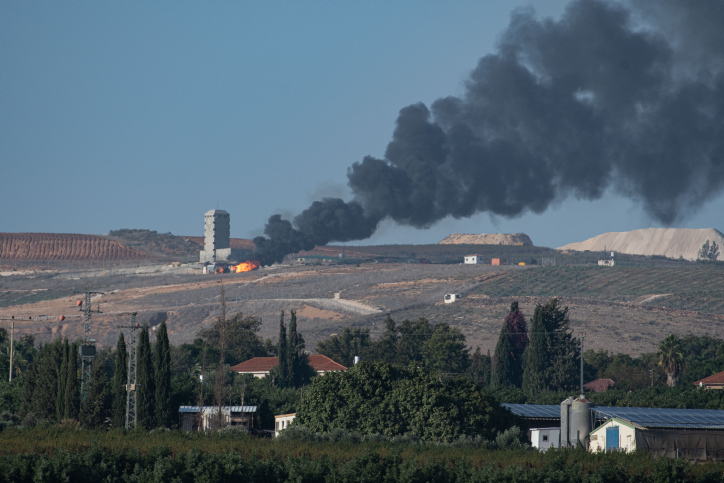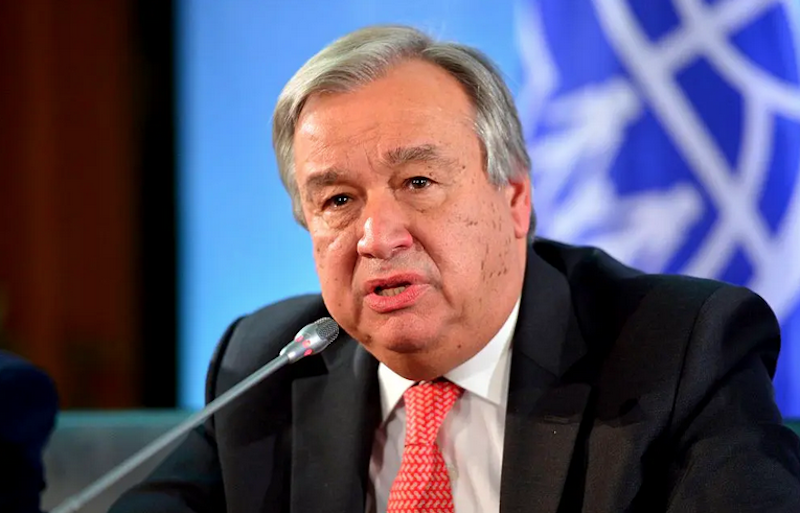Israel’s cabinet unanimously voted to shut down Al Jazeera in the country on Sunday, immediately ordering the closure of its offices and a ban on the company’s broadcasts.
The decision was announced by Israeli Prime Minister Benjamin Netanyahu on X. Hours later, Israel’s Communications Minister Shlomo Karhi published footage on X showing Israeli authorities – specifically inspectors from the Ministry of Communications, backed by the police – raiding the Al Jazeera office in East Jerusalem and confiscating the channel’s equipment.
The shutdown comes a month after Israel’s parliament, the Knesset, passed a law on April 1 that allowed Israel to temporarily shut down foreign media outlets — including Al Jazeera — if it deems them a threat to security.
In a previously recorded report, Al Jazeera’s Imran Khan, reporting from occupied East Jerusalem, explained the terms of the law further. Based on the law, the Al Jazeera website is banned in Israel, “including anything that has the option of entering or accessing the website, even passwords that are needed, whether they’re paid or not, and whether it’s stored on Israeli servers or outside of Israel”, Khan added.
Additionally, the Al Jazeera television channel is completely banned in Israel, he explained. Within the country, cable providers now show a message that the network is prohibited from the air, though in East Jerusalem, some people have told Al Jazeera that they could still access the channel on television as of Monday afternoon.
Khan added that the internet access provider that hosts aljazeera.net “is also in danger of being fined if they host the website”.
Akiva Eldar, a political analyst and contributor to Israeli newspaper Haaretz, told Al Jazeera that the shutdown is “a very populistic move to feed the beast of the public opinion that is very disappointed from the conduct of the government in Gaza and in the international arena”, adding that this is also “to please the partners from the radical right”. Netanyahu’s government relies on support from a band of far-right parties and leaders — many of them, like Finance Minister Bezalel Smotrich and Minister of National Security Itamar Ben-Gvir, holding key positions in the cabinet.
Karhi’s office said that Al Jazeera is shut down for 45 days, and the shutdown can be renewed, in accordance with the law passed on April 1.
When the law was passed, Netanyahu said he would “act immediately” in accordance with it to stop Al Jazeera’s activity. However, the timing of the shutdown, a month later, coincides with crucial negotiations between Israel and Hamas on the war, mediated by Egypt and Qatar, where Al Jazeera has its headquarters.
Al Jazeera has been targeted by Israel before: Netanyahu threatened to shut down its Jerusalem office back in 2017, and an Israeli missile destroyed the building housing the broadcaster’s office in Gaza in 2021. Many Al Jazeera journalists — and in several cases, their families — have been killed in Israeli firing or bombing, including during the current war in Gaza.
On Sunday, Al Jazeera released a statement condemning the shutdown, describing it as a “criminal act” and warning that Israel’s suppression of the free press “stands in contravention of international and humanitarian law”.
The statement further said that Al Jazeera would continue to provide news to a global audience.
Al Jazeera’s correspondents can no longer report from Israel, including occupied East Jerusalem. This is because both the main office in West Jerusalem and the office in occupied East Jerusalem were closed and equipment was confiscated.
Karhi said the equipment he ordered to be confiscated included editing and routing equipment, cameras, microphones, servers and laptops, alongside wireless transmission equipment and some mobile phones.
In the pre-recorded report, Al Jazeera’s Khan added that Israel is also banning any device used for providing content. “That includes my mobile phone. If I use that to do any kind of news gathering, then the Israelis can simply confiscate it”.
While it is unclear how the shutdown will affect the reporting from Al Jazeera correspondents who are in Gaza or the occupied West Bank, access to both Palestinian regions is controlled largely by Israel. Al Jazeera has called earlier attacks on its journalists and offices attempts to target its journalism and stop it from reporting on Israel’s assaults on Palestinians — including during the current war.
Since the beginning of the war on October 7, Israel has largely blocked entry into Gaza for foreign journalists.
That has meant that Al Jazeera’s correspondents in Gaza have been among the few from a major international media organisation to bring the deadly Israeli bombardment and killings in the Palestinian enclave to a global audience.
In February, more than 50 international broadcast journalists signed an open letter to Egyptian and Israeli authorities to call for “free and unfettered access to Gaza for all foreign media”.
Journalism advocacy groups and officials from around the world denounced the ban, warning it could stopper the free flow of information and chill democratic ideals.
“Israel makes much of being a democracy, and I think the idea that it can simply close down an international broadcaster of considerable repute and history is atrocious,” Tim Dawson from the International Federation of Journalists said in an interview with Al Jazeera. “Sadly, it is part of a long set of actions that the Israeli government has taken to try and thwart free reporting of this conflict.”
Speaking from the White House in Washington, DC, on Monday, national security advisor John Kirby reiterated that the administration of United States President Joe Biden opposed the shuttering of Al Jazeera in Israel.
“We don’t support that action, as we said very clearly on World Press Freedom Day on Friday,” Kirby explained.
“The work of independent journalism around the world is absolutely vital. It’s important to an informed citizenry and public, but it’s also important to help inform the policy-making process. So we don’t support that at all.”
The UN human rights office also condemned the shutdown in a post on the social media platform X on Sunday.
Greek economist and former Finance Minister Yanis Varoufakis posted on X on Monday, condemning the shutdown. “Israel’s banning of Al Jazeera is one aspect of its War On Truth. It aims at preventing Israelis from knowing that what goes on in Gaza,” he wrote.
On X, many others referenced Israel’s declared plan to launch a ground offensive in Gaza’s Rafah, its latest such land assault in seven months of unrelenting war in which more than 34,700 people have been killed.
Diane Abbott, United Kingdom parliamentarian, also condemned the shutdown in an X post on Monday.
Eldar, who spoke to Al Jazeera from Tel Aviv, said: “This is, I’m afraid, not the last step.”
He said that other news outlets might also see a shutdown by the Israeli government. “We know that there are ministers, among them the minister of communication, that are looking at other networks, including Israeli channels, that are not satisfying the government”.
In November, Karhi, the communications minister, threatened Eldar’s newspaper, Haaretz, with sanctions over its critical coverage of Israel’s war on Gaza.
Eldar also added that he expected the law that the Netanyahu government used to shut down Al Jazeera to be challenged in court.
Al Jazeera also called on media freedom and human rights organisations to condemn the shutdown and is currently assessing what to do next. The statement published by the media network on Sunday said it would pursue “all available legal channels to protect both its rights and journalists”.




























